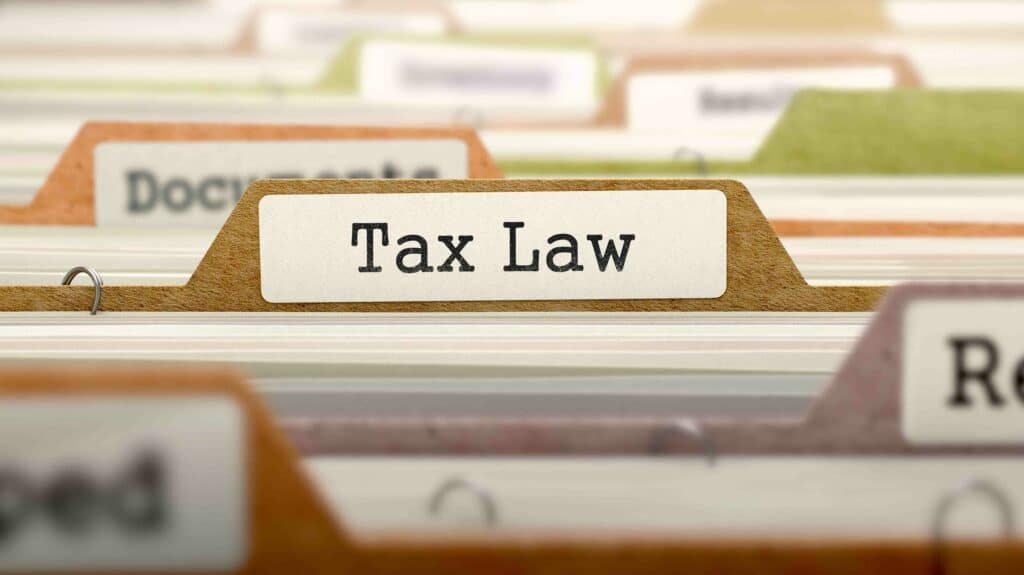Failure to comply with just a single provision of an exemption regulation results in the non-applicability of the whole regulation and makes any implemented aid measure automatically illegal. The compatibility of aid measures adopted in the past but continuing having effects are assessed not on the basis of old rules but on the basis of the rules which are applicable […]
State Aid Law
Blog
State Aid Uncovered Blog
In Lexxion’s State Aid Uncovered blog, Prof. Phedon Nicolaides publishes weekly critical analyses of recent State aid judgments and decisions. Each post presents the key points of a court judgment or EU Commission decision, places it in the context of similar case law or practice, assesses the underlying reasoning and highlights any inconsistencies or contradictions.
Guest contributions from other State aid experts will also be published on the blog at irregular intervals to complement the content of the blog posts.
State Aid Uncovered ×
7. August 2018 |
State Aid Uncovered
by Phedon Nicolaides
27. July 2018 |
State Aid Uncovered
by Phedon Nicolaides
A selective measure should be determined on the basis of its effects, not on the basis of the legally defined regulatory techniques. Introduction A tax measure is selective in the meaning of Article 107(1) TFEU when it basically deviates from the normal tax system. In the case of a tax reduction or a tax exemption the normal system is […]
17. July 2018 |
State Aid Uncovered
by Phedon Nicolaides
A selective tax reduction does not constitute State aid if it does not confer an advantage that is proportionately larger than the magnitude of the tax reduction. A complete exemption of insignificant amounts of the taxable volume can be justified on the grounds of reducing administrative burden. Introduction Member States enjoy wide discretion to levy taxes on […]
10. July 2018 |
State Aid Uncovered
by Phedon Nicolaides
Introduction On 18 June 2018, the European Commission published its Annual Report on Competition Policy for 2017.[1] As usually, the Annual Report is accompanied by a Staff Working Paper that has almost four times as many pages as the Annual Report and provides more details on developments in all areas of competition policy, including State aid.The pre-eminent role of the […]
3. July 2018 |
State Aid Uncovered
by Phedon Nicolaides
Block exemption of new financial instruments. Introduction The Commission has recently published a proposal for amendment of Council Regulation 2015/1588[1] which authorises the Commission to adopt block exemption regulations. The purpose of the Commission’s proposal is to expand Article 1 of Regulation 2015/1588. This Article lists the categories of aid that may be declared compatible with the internal market.The […]
25. June 2018 |
State Aid Uncovered
by Phedon Nicolaides
Damage from natural disasters can be remedied in the short-term through direct compensation or in the longer-term through investment subsidies to support new productive capacity. Introduction This article reviews a rather straightforward case which, however, is also quite unusual. It concerns a measure to remedy the effect of recent earthquakes in Italy. What makes it unusual is that […]
19. June 2018 |
State Aid Uncovered
by Phedon Nicolaides
A measure that covers a whole sector can be selective. Distortions caused by the policies of other Member States cannot justify the granting of State aid. The purpose of State aid is not to ensure equal conditions of competition across Member States. Introduction On 31 May 2018, the General Court ruled in case T-160/16, Groningen Seaports v European Commission.[1] Groningen […]
12. June 2018 |
State Aid Uncovered
by Phedon Nicolaides
Most State aid for the development of broadband networks is approved by the Commission. But the aid must be limited only to areas where market-based investments are unlikely to be made without aid. Introduction This article reviews a recent Commission decision authorising State aid for broadband development in the Netherlands which is one of the most networked countries […]
5. June 2018 |
State Aid Uncovered
by Phedon Nicolaides
The Extent of the Discretion of Member States to Define Services of General Economic Interest (SGEI)
A service is classified as an SGEI not only when it is important for citizens but also when the market does not adequately supply it and one or more undertakings are compelled to provide it to specified consumers, in specified areas and on specified terms. Introduction The Treaty on the Functioning of the EU and the case law […]
29. May 2018 |
State Aid Uncovered
by Phedon Nicolaides
Tax exemptions do not constitute State aid when they aim to induce change in the behaviour of consumers, when they distinguish between harmful products and non-harmful products and for reasons of administrative simplicity. Introduction In the past two weeks, an article was published in two parts criticising the judgments of the Court of Justice in three cases of […]
State Aid Uncovered ×
7. August 2018 |
State Aid Uncovered
by Phedon Nicolaides
Failure to comply with just a single provision of an exemption regulation results in the non-applicability of the whole regulation and makes any implemented aid measure automatically illegal. The compatibility of aid measures adopted in the past but continuing having effects are assessed not on the basis of old rules but on the basis of the rules which are applicable […]
27. July 2018 |
State Aid Uncovered
by Phedon Nicolaides
A selective measure should be determined on the basis of its effects, not on the basis of the legally defined regulatory techniques. Introduction A tax measure is selective in the meaning of Article 107(1) TFEU when it basically deviates from the normal tax system. In the case of a tax reduction or a tax exemption the normal system is […]
17. July 2018 |
State Aid Uncovered
by Phedon Nicolaides
A selective tax reduction does not constitute State aid if it does not confer an advantage that is proportionately larger than the magnitude of the tax reduction. A complete exemption of insignificant amounts of the taxable volume can be justified on the grounds of reducing administrative burden. Introduction Member States enjoy wide discretion to levy taxes on […]
10. July 2018 |
State Aid Uncovered
by Phedon Nicolaides
Introduction On 18 June 2018, the European Commission published its Annual Report on Competition Policy for 2017.[1] As usually, the Annual Report is accompanied by a Staff Working Paper that has almost four times as many pages as the Annual Report and provides more details on developments in all areas of competition policy, including State aid.The pre-eminent role of the […]
3. July 2018 |
State Aid Uncovered
by Phedon Nicolaides
Block exemption of new financial instruments. Introduction The Commission has recently published a proposal for amendment of Council Regulation 2015/1588[1] which authorises the Commission to adopt block exemption regulations. The purpose of the Commission’s proposal is to expand Article 1 of Regulation 2015/1588. This Article lists the categories of aid that may be declared compatible with the internal market.The […]
25. June 2018 |
State Aid Uncovered
by Phedon Nicolaides
Damage from natural disasters can be remedied in the short-term through direct compensation or in the longer-term through investment subsidies to support new productive capacity. Introduction This article reviews a rather straightforward case which, however, is also quite unusual. It concerns a measure to remedy the effect of recent earthquakes in Italy. What makes it unusual is that […]
19. June 2018 |
State Aid Uncovered
by Phedon Nicolaides
A measure that covers a whole sector can be selective. Distortions caused by the policies of other Member States cannot justify the granting of State aid. The purpose of State aid is not to ensure equal conditions of competition across Member States. Introduction On 31 May 2018, the General Court ruled in case T-160/16, Groningen Seaports v European Commission.[1] Groningen […]
12. June 2018 |
State Aid Uncovered
by Phedon Nicolaides
Most State aid for the development of broadband networks is approved by the Commission. But the aid must be limited only to areas where market-based investments are unlikely to be made without aid. Introduction This article reviews a recent Commission decision authorising State aid for broadband development in the Netherlands which is one of the most networked countries […]
5. June 2018 |
State Aid Uncovered
by Phedon Nicolaides
The Extent of the Discretion of Member States to Define Services of General Economic Interest (SGEI)
A service is classified as an SGEI not only when it is important for citizens but also when the market does not adequately supply it and one or more undertakings are compelled to provide it to specified consumers, in specified areas and on specified terms. Introduction The Treaty on the Functioning of the EU and the case law […]
29. May 2018 |
State Aid Uncovered
by Phedon Nicolaides
Tax exemptions do not constitute State aid when they aim to induce change in the behaviour of consumers, when they distinguish between harmful products and non-harmful products and for reasons of administrative simplicity. Introduction In the past two weeks, an article was published in two parts criticising the judgments of the Court of Justice in three cases of […]
State Aid Uncovered ×
7. August 2018 |
State Aid Uncovered
by Phedon Nicolaides
Failure to comply with just a single provision of an exemption regulation results in the non-applicability of the whole regulation and makes any implemented aid measure automatically illegal. The compatibility of aid measures adopted in the past but continuing having effects are assessed not on the basis of old rules but on the basis of the rules which are applicable […]
27. July 2018 |
State Aid Uncovered
by Phedon Nicolaides
A selective measure should be determined on the basis of its effects, not on the basis of the legally defined regulatory techniques. Introduction A tax measure is selective in the meaning of Article 107(1) TFEU when it basically deviates from the normal tax system. In the case of a tax reduction or a tax exemption the normal system is […]
17. July 2018 |
State Aid Uncovered
by Phedon Nicolaides
A selective tax reduction does not constitute State aid if it does not confer an advantage that is proportionately larger than the magnitude of the tax reduction. A complete exemption of insignificant amounts of the taxable volume can be justified on the grounds of reducing administrative burden. Introduction Member States enjoy wide discretion to levy taxes on […]
10. July 2018 |
State Aid Uncovered
by Phedon Nicolaides
Introduction On 18 June 2018, the European Commission published its Annual Report on Competition Policy for 2017.[1] As usually, the Annual Report is accompanied by a Staff Working Paper that has almost four times as many pages as the Annual Report and provides more details on developments in all areas of competition policy, including State aid.The pre-eminent role of the […]
3. July 2018 |
State Aid Uncovered
by Phedon Nicolaides
Block exemption of new financial instruments. Introduction The Commission has recently published a proposal for amendment of Council Regulation 2015/1588[1] which authorises the Commission to adopt block exemption regulations. The purpose of the Commission’s proposal is to expand Article 1 of Regulation 2015/1588. This Article lists the categories of aid that may be declared compatible with the internal market.The […]
25. June 2018 |
State Aid Uncovered
by Phedon Nicolaides
Damage from natural disasters can be remedied in the short-term through direct compensation or in the longer-term through investment subsidies to support new productive capacity. Introduction This article reviews a rather straightforward case which, however, is also quite unusual. It concerns a measure to remedy the effect of recent earthquakes in Italy. What makes it unusual is that […]
19. June 2018 |
State Aid Uncovered
by Phedon Nicolaides
A measure that covers a whole sector can be selective. Distortions caused by the policies of other Member States cannot justify the granting of State aid. The purpose of State aid is not to ensure equal conditions of competition across Member States. Introduction On 31 May 2018, the General Court ruled in case T-160/16, Groningen Seaports v European Commission.[1] Groningen […]
12. June 2018 |
State Aid Uncovered
by Phedon Nicolaides
Most State aid for the development of broadband networks is approved by the Commission. But the aid must be limited only to areas where market-based investments are unlikely to be made without aid. Introduction This article reviews a recent Commission decision authorising State aid for broadband development in the Netherlands which is one of the most networked countries […]
5. June 2018 |
State Aid Uncovered
by Phedon Nicolaides
The Extent of the Discretion of Member States to Define Services of General Economic Interest (SGEI)
A service is classified as an SGEI not only when it is important for citizens but also when the market does not adequately supply it and one or more undertakings are compelled to provide it to specified consumers, in specified areas and on specified terms. Introduction The Treaty on the Functioning of the EU and the case law […]
29. May 2018 |
State Aid Uncovered
by Phedon Nicolaides
Tax exemptions do not constitute State aid when they aim to induce change in the behaviour of consumers, when they distinguish between harmful products and non-harmful products and for reasons of administrative simplicity. Introduction In the past two weeks, an article was published in two parts criticising the judgments of the Court of Justice in three cases of […]













